|
Building One America |
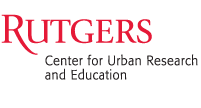 |
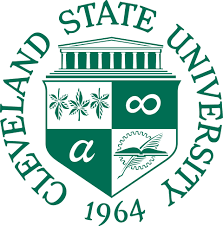 |
Organizing for Inclusion, Sustainability, and Opportunity
Friday, July 21, 2017
Rutgers University-Camden
Campus Center
326 Penn St.
Camden, NJ 08102
AGENDA:
- The State of Metro America – the Obama years, the recent election, and the days ahead.
- Some of America’s top experts, leaders and practitioners will provide us with new data and analysis on the state of our regions and diverse middle class communities. 1. We will reflect on what was accomplished and what we learned during the past 8 years, 2. We will learn about the pivotal, but largely unreported, role of our diverse suburbs and urban centers in the recent election and 3. What this means for the future of American politics and our regions.
- Inclusion and Segregation
- We will hear about the growth of diversity and inclusion but also the deepening of racial segregation, both urban and suburban in many of our metro areas. And we will discuss the social, economic and political implications of this reality that too many of our mainstream political leaders and pundits have chosen to ignore.
- Understanding and Building Power
- We will spend a considerable amount of time examining issues of power. We will look more deeply at the entrenched and interconnected institutions that are sustained and profit from status-quo fragmentation, segregation and regional disparities. And we will look honestly at the political power needed, through organizing and alliances, to overcome the forces of divisions and inequality needed to achieve meaningful breakthroughs.
- Labor and Civil Rights
- Drawing on our past, we know that organized labor, when firmly aligned with civil rights and the cause of racial and economic justice, have achieved enormous victories for all working people, families and communities. We will explore the overlapping interest and moral imperative for a renewed effort to align labor and civil rights to advance our shared values and intersecting interests.
- Issues and Stories
- We will hear of success stories and heroic efforts around the country to promote Inclusionary housing, fair school funding, infrastructure investment, inclusive schools and stable communities at the state and regional level.
- Training and Support
- We will discuss BOA’s program and strategic priorities for training leaders, organizing multiracial middle-class city/suburban coalitions, and advancing a unified narrative and policy agenda for promoting racial justice and economic opportunity.
- Honoring our Outstanding Leaders
- Building One America will recognize Clayola Brown, President of the A. Philip Randolph Institute; Kenneth E. Rigmaiden, General President, International Union of Painters and Allied Trades; and Eva Henry, Commissioner, Adams County, Colorado. Congressman Charlie Dent, Representative, 15th District, Pennsylvania will be the recipient of the Steve LaTourette Unified America Award for Outstanding Bipartisan Leadership. We will remember Joe McNamara, a great friend and director of the New Jersey Laborers-Employers Cooperation and Education Trust (LECET) affiliated with the Laborers’ International Union of North America (LIUNA).
National Summit for Inclusive Communities and Sustainable Regions, July 21 hosted by the Center for Urban Research and Education (CURE) at Rutgers University-Camden. Early registration is open and available here. Sponsorships can be purchased here.



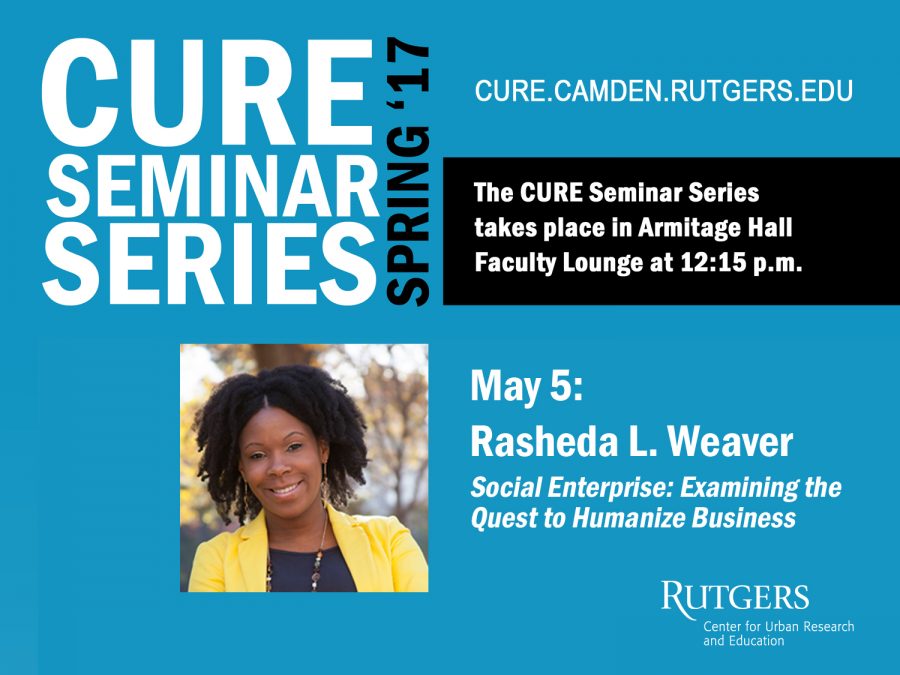 Social enterprises are businesses that utilize their revenue to combat social problems. Since the millennium, social enterprises have significantly grown throughout the United States. This talk will focus on Doctoral Candidate Rasheda L. Weaver’s empirical research study of 115 social enterprises throughout the nation. The discussion will describe the social issues social enterprises target, how they generate revenue, the laws they incorporate under, and the contexts in which they develop.
Social enterprises are businesses that utilize their revenue to combat social problems. Since the millennium, social enterprises have significantly grown throughout the United States. This talk will focus on Doctoral Candidate Rasheda L. Weaver’s empirical research study of 115 social enterprises throughout the nation. The discussion will describe the social issues social enterprises target, how they generate revenue, the laws they incorporate under, and the contexts in which they develop.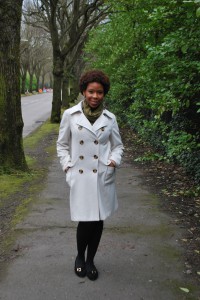 Rasheda L. Weaver is a fourth-year PhD candidate in the Public Affairs program at Rutgers University-Camden that will graduate in May 2017. Her research interests include social entrepreneurship, community development, and applied psychology.
Rasheda L. Weaver is a fourth-year PhD candidate in the Public Affairs program at Rutgers University-Camden that will graduate in May 2017. Her research interests include social entrepreneurship, community development, and applied psychology.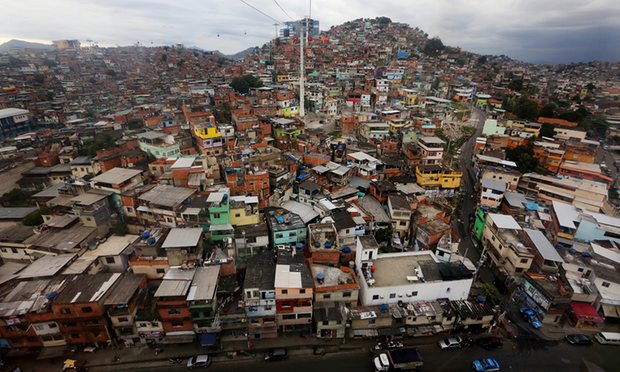 Dozens of official legacy promises were made to Rio de Janeiro’s citizens that would come as a result of hosting August’s Olympic Games. In the end, what Rio experienced was a very public six year “boom and bust” resulting in deep skepticism and anger over the failed legacies of the Games. Now, two months after the Games, Brazil is living through a deep economic recession, and in Rio crime rates and unemployment are rising while resources dry up, the police are downsizing, and the international media are swooping off to cover the next beat. The Olympics, which invested some $15 billion in the city, feel like a distant memory. And the past week’s mayoral election also brings an entirely new political agenda to the table.
Dozens of official legacy promises were made to Rio de Janeiro’s citizens that would come as a result of hosting August’s Olympic Games. In the end, what Rio experienced was a very public six year “boom and bust” resulting in deep skepticism and anger over the failed legacies of the Games. Now, two months after the Games, Brazil is living through a deep economic recession, and in Rio crime rates and unemployment are rising while resources dry up, the police are downsizing, and the international media are swooping off to cover the next beat. The Olympics, which invested some $15 billion in the city, feel like a distant memory. And the past week’s mayoral election also brings an entirely new political agenda to the table.